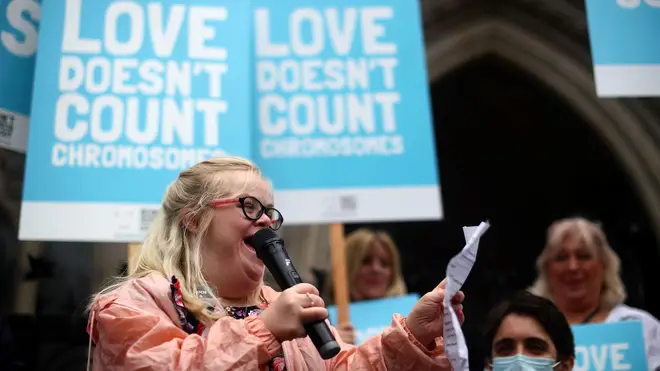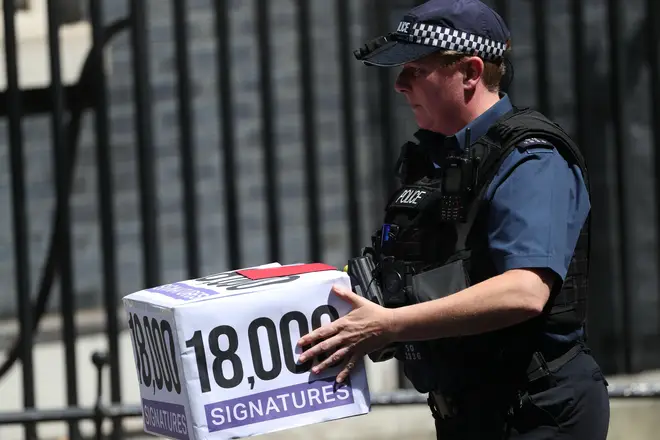
Nick Abbot 10pm - 1am
23 September 2021, 10:42 | Updated: 23 September 2021, 12:43

A legal challenge opposing a law that allows babies with Down's syndrome to be aborted up until birth has failed.
Heidi Crowter, a 26-year-old with the condition, hoped to remove a section of the Abortion Act, claiming it was an "instance of inequality".
The Coventry resident brought legal action agains the Department of Health and Social Care with three other claimants.
The time limit on having an abortion is 24 weeks in England, Scotland and Wales, but they can be allowed up until birth if there is a "a substantial risk that if the child were born it would suffer from such physical or mental abnormalities as to be seriously handicapped".
That definition includes Down's syndrome.
Lawyers for the claimants argued the law is incompatible with the European Convention on Human Rights and therefore discriminatory.
Read more: Government unlawfully failed to publish Covid contracts, High Court rules
Read more: Girl, 12, loses High Court battle against school for 'requiring' pupils to wear masks

But judges have ruled against them, it was announced on Thursday morning.
Lord Justice Singh and Mrs Justice Lieven said the issues in the case were "highly sensitive and sometimes controversial".
They said: "The evidence before the court powerfully shows that there will be some families who positively wish to have a child, even knowing that it will be born with severe disabilities.
"But the evidence is also clear that not every family will react in that way. As it was put on behalf of the defendant, the ability of families to provide a disabled child with a nurturing and supportive environment will vary significantly.
"The evidence is also clear that, although scientific developments have improved and earlier identification may be feasible, there are still conditions which will only be identified late in a pregnancy, after 24 weeks."
They went on: "We know, from the debates in the House of Lords that have been placed before us, that views were expressed by some parliamentarians about how cruel it would be to compel a woman to give birth to a child she did not want and did not feel able to look after.
"There is powerful evidence before this court of families which provide a loving environment to children who are born with serious disabilities but we do not know what would happen, in a counter-factual world, in which some women have been compelled by the fear of the criminal law to give birth to children who will not be loved or wanted.
"This is just one example of the intensely difficult issues which are better debated in Parliament, which can take account of different interests and viewpoints, rather than in litigation."
Ms Crowter said the claimants would appeal.
She said: "I am really upset not to win but the fight is not over.
"The judges might not think it discriminates against me, the Government might not think it discriminates against me, but I am telling you that I do feel discriminated against... and the verdict doesn't change how I and thousands in the Down's syndrome community feel.
"We face discrimination every day in schools, in the workplace and in society. And now, thanks to this verdict, the judges have upheld discrimination in the womb too. This is a very sad day but I will keep fighting.
"Thank you to my amazing friend Paul Conrathe and his team for their work on this case. Thank you to my mum and James for supporting me and for all in the DS community who have supported me and Aidan.
"I am not giving up."